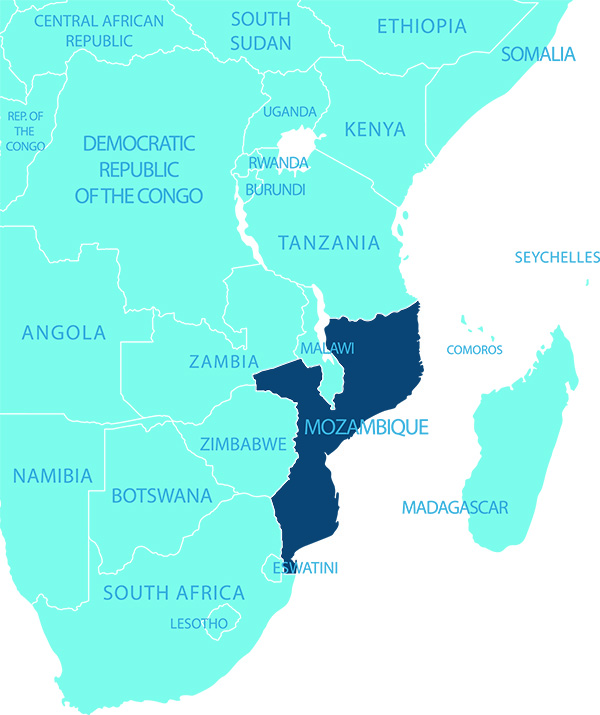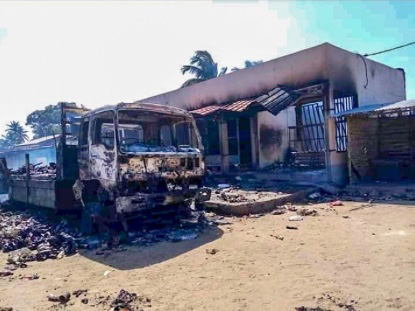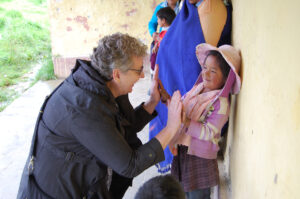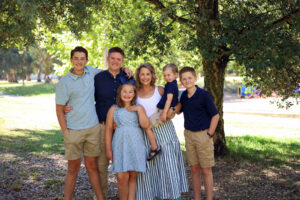CABO DELGADO, Mozambique (BP and local reports) — Islamic extremists have stepped up attacks on Christians in northernmost Mozambique as the faith increases there, the international evangelistic ministry Voice of the Martyrs (VOM) said in its latest special report.
Radical Islamists have killed nearly 3,000 and displaced more than 800,000 Christians and moderate Muslims in recent years when they refused to recite certain creeds, VOM said in its report. A focal point is the Cabo Delgado province, where the Christian population has risen to 40% since 2017.
In a 2020 attack that killed 70 residents of a Cabo Delgado village, Islamists decapitated all affirmed Christians. “Islamists gathered everyone in Pastor Matateu’s village and asked each of them a single question: ‘What is your religion?’ Those who answered ‘Christian’ were decapitated, and pastors and their families were killed in especially gruesome, torturous ways,” VOM reported.
“The insurgents then reportedly raised an Islamic flag and declared the establishment of Sharia, or Islamic law. Pastor Matateu and his family hid in the bush for more than a month,” VOM said.
The terrorists are members of Ahl al-Sunnah wal-Jamaah, translated as “Adherents of the Prophetic Tradition,” remnants of an extremist group from Tanzania.

The group initially targeted police and government buildings, VOM said, but began targeting Christians and entire towns after pledging allegiance to the Islamic State in 2019. Locally, the insurgents are known as al-Shabab but are not affiliated with the Somalian Islamists of the same name.
Among the towns that have been attacked is the Indian Ocean port city of Mocimboa de Praia, once home to 120,000 people, which has been devastated and largely abandoned since 2019.
Todd Nettleton, VOM chief of media relations and message integration, said pastors are especially persecuted. “When one of our VOM staff members arrived in Pemba, Mozambique earlier this year, he was immediately taken to lunch with four pastors, all of whom had experienced Islamist attacks firsthand,” Nettleton said.
“One pastor who had been separated from his wife while fleeing attackers still didn’t know if his wife was alive or dead months after the attack. And another pastor had suffered the traumatic experience of finding the mutilated body of his young son, who was murdered by the Islamists.”
Nettleton commended the pastors’ perseverance in faith and Christian service, encouragement that Mozambique Christians remain faithful, comfort as they comfort others, and taking advantage of opportunities to show Christ’s love to their persecutors.
“Jesus is being lifted up in northern Mozambique. His great name is being glorified by men and women who value Jesus Christ more than their own safety or comfort, men and women who ‘loved not their lives even unto death,’” Nettleton said, referencing Revelation 12:11.
VOM quoted Matateu as saying, “What could separate me from God? Death, no! The war, no! So of course, I will continue to serve my God. Because He gave Himself, I will always give myself.”
“What could separate me from God? Death, no! The war, no! So of course, I will continue to serve my God. Because He gave Himself, I will always give myself.”
Pastor Matateu
Nationwide, 54% of Mozambique’s 32.3 million people are Christian, according to persecution watchdog Open Doors in its 2022 World Watch List. Still, Mozambique was ranked by Open Doors as the 45th most dangerous country for Christians — the country’s first appearance on the list of the 50 countries where Christians suffer the most persecution and danger.
Although constitutionally identified as a secular country with religious freedom, Mozambique “generally… has limited religious freedom,” Open Doors has reported. “However, the persecution of Christians is severest in the northern Cabo Delgado Province due to ISIS-affiliated extremists carrying out violent attacks there.”
The New York Times reported in October of last year that U.S. Special Forces members have established a training presence to help local military forces counter the extremists.








